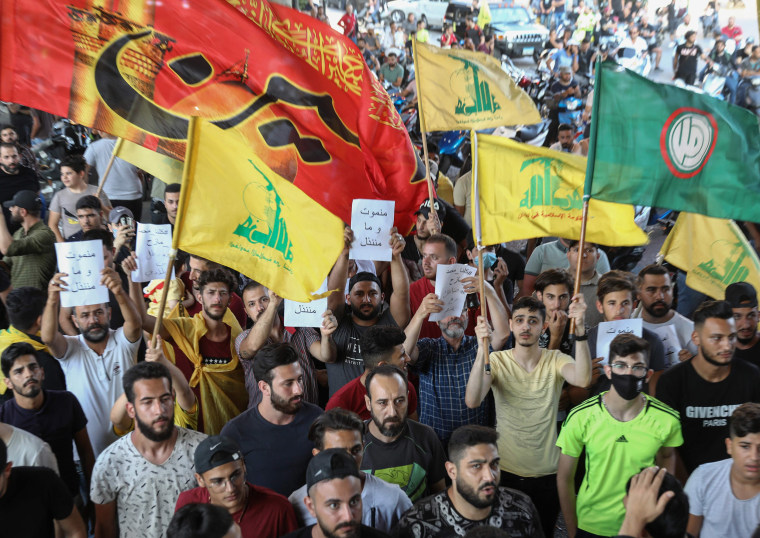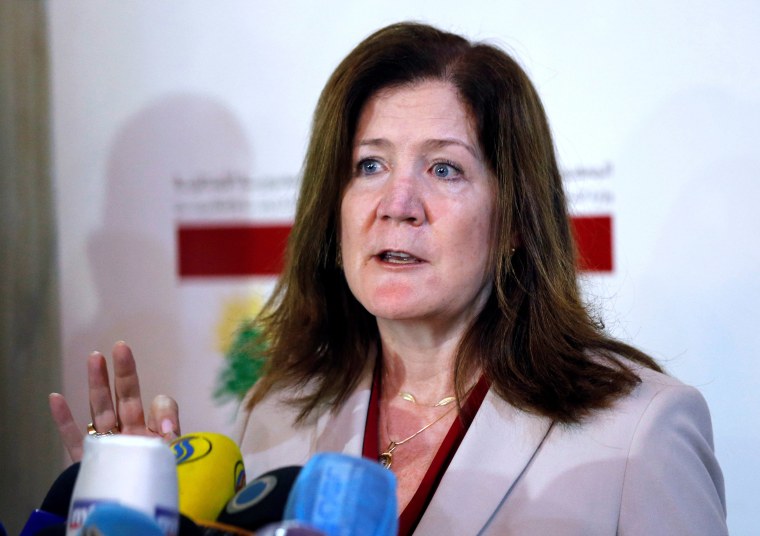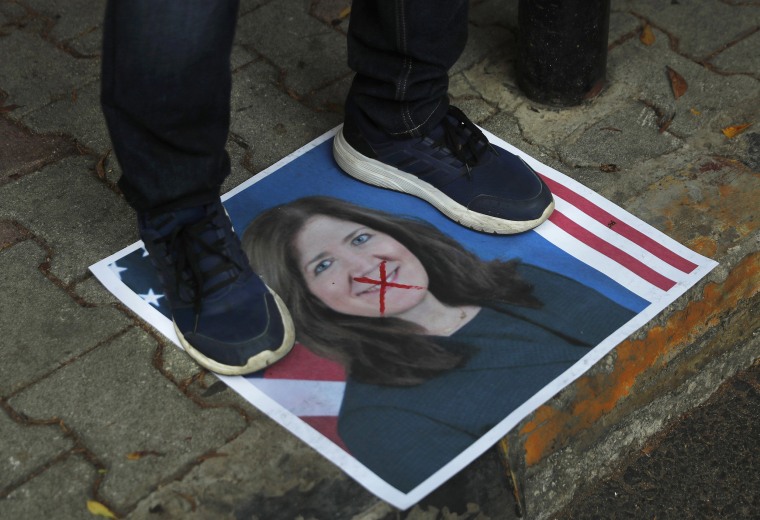BEIRUT — The U.S. ambassador to Lebanon has vowed she won’t be silenced despite a court order banning media outlets from talking to her — a ruling that was slammed by some within the Lebanese government — after she criticized the country’s most powerful party amid an escalating financial crisis.
A judge passed an order to stop media outlets from speaking to Dorothy Shea or reporting her comments for a year or face a $200,000 fine and a broadcasting ban if adopted by the country’s Information Ministry, after she publicly criticized Hezbollah, the Iran-backed political party and militant group that controls the country’s government.
Saturday’s ruling by Judge Mohammed Mazeh, who is based in the southern Hezbollah stronghold of Tyre, came after Shea accused Hezbollah of destabilizing an economic recovery in Lebanon and siphoning billions of dollars from the government.
Shea’s comments in a TV interview on the Saudi state-owned broadcaster Al-Hadath came after Hezbollah leader Hassan Nasrallah claimed in a speech June 16 that Lebanon’s crippling dollar shortage was the result of a U.S conspiracy. He added that the United States was trying to starve Lebanon and said “we will kill them” before that could happen.

Shea discussed the potential for further sanctions targeting the group and said Nasrallah’s speech was "riddled with classic deflections — blaming everything on the United States when we're Lebanon's biggest donor."
But Lebanon’s Information Ministry denied that freedom of speech was being curtailed.
"No one has the right to ban media from carrying news or limit its media freedom,” Information Minister Manal Abdel-Samad said shortly after the announcement.
Several local television channels ignored the ruling and aired interviews with Shea on Sunday in which she doubled down in her criticism.
“I think it is a distraction. I wish people would spend their time and attention trying to solve the problems facing the country,” she told the Lebanese news station MTV. “The U.S Embassy will not be silenced.”
Lebanon is in the midst of its biggest economic crash in modern history with the local currency, which has been pegged to the dollar for decades, losing 80 percent of its value since October. The prospect of widespread hunger is looming over much of the country as wages plummet, unemployment soars and prices skyrocket.
The country has been locked in crisis talks with the International Monetary Fund since May, but on Monday a second high-level Lebanese official resigned from the national negotiating team, with no agreement in sight.
Hezbollah, the most powerful Iran-backed group in the region, is designated as a terrorist organization by the U.S., the United Kingdom and Germany, but holds political office in Lebanon.
The group is highly influential in the region and plays a key role in political and military matters. It fought alongside Syrian President Bashar al-Assad in the Syrian war and fought a four-week war with neighboring Israel in 2006, a conflict that has sporadically flared up since.

Washington is, however, the largest donor to the Lebanese army, leading to a complex and delicately balanced relationship.
The ruling is the most prominent in a recent string of cases of people speaking out against Hezbollah and the government. The judge said the ambassador’s words "offended many Lebanese," pitted them against each other and "constitutes pouring oil on the fire of [sectarian] strife."
The backlash against the ruling was swift and the ambassador was summoned to meet Lebanese Foreign Minister Nassif Hitti on Monday, while Mazeh offered to resign by Tuesday.
"We turned the page on this unfortunate distraction so we can all focus on the real crisis at hand, which is the deteriorating economic situation in Lebanon," Shea said following the meeting.
Hezbollah-affiliated lawyers demonstrated outside Beirut’s Justice Palace on Monday in solidarity with Mazeh’s gag order.
Reuters contributed to this report
